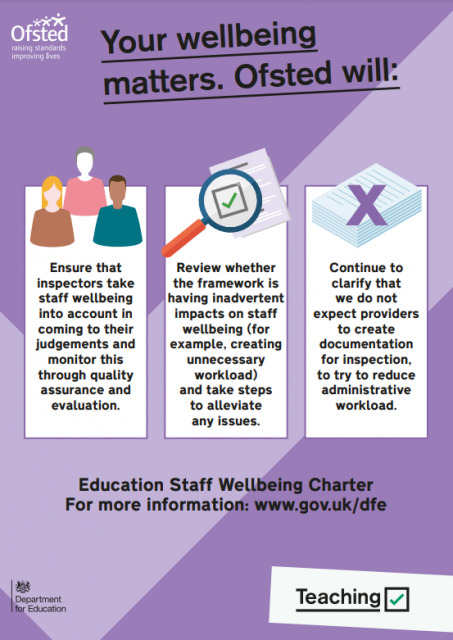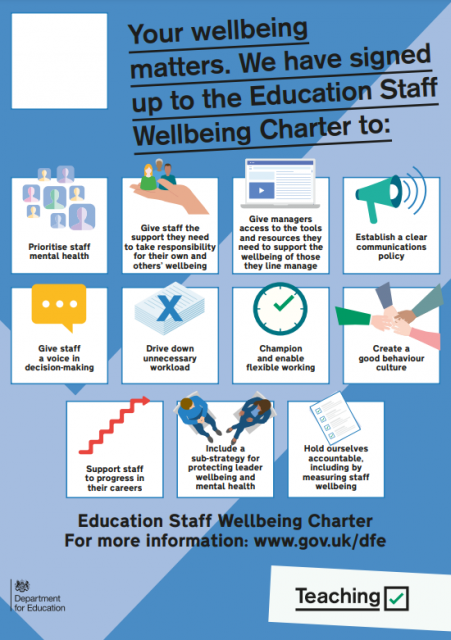Ofsted will review the impact its inspection framework has on staff wellbeing and the government has promised not to publish guidance outside of working hours as part of a new charter unveiled today.
The Department for Education and Ofsted have made 12 commitments as part of the new education staff wellbeing charter.
From the autumn, schools will also be able to sign up to a voluntary charter of 11 pledges, aimed at showing a commitment to “protect, promote and enhance” staff wellbeing.
One of Ofsted’s three commitments is to “review whether the framework is having inadvertent impacts on staff wellbeing (for example, creating unnecessary workload) and take steps to alleviate any issues”.

They will also ensure inspectors take staff wellbeing into account in coming to their judgements and monitor it through quality assurance and evaluation.
One of DfE’s nine pledges is to publish gov.uk updates aimed at education professionals “only during working hours”. However, exceptions include if there is a “significant user need” in publishing the information, or a legislative requirement
Schools Week reported last year that school leaders had to read almost 100 updates to government guidance in just four months during the covid crisis – a quarter of them published during anti-social hours.
End of mental health stigma
The DfE also wants to break down stigma around mental health by building it into its “wider communications strategy on recruitment and retention, linking to existing campaigns that aim to tackle mental health stigma in our society”.
Schools who sign the charter commit to “placing wellbeing and mental health at the heart of our decision making.
“We will support staff to make positive choices for their own wellbeing and encourage a collegiate culture across and between all roles in the school or college,” it reads.
Pledges include having a “sub-strategy” for protecting school leader wellbeing and mental health, as well as “hold[ing] ourselves accountable” by “measuring staff wellbeing” and monitoring “rends over time”.
It follows an initiative in Manchester, led by the University of Manchester and Anna Freud Centre, where schools will be able to use a pupil wellbeing dashboard to see how well their students are coping.

The government will review the progress its made against the commitments in 2023. Schools will also be surveyed to gauge how much impact the charter has had.
The charter was drawn up by a group made up of teaching unions, several schools and mental health charity Mind.








Your thoughts